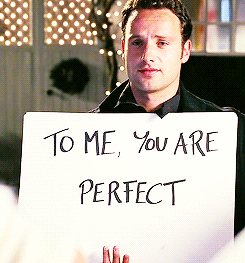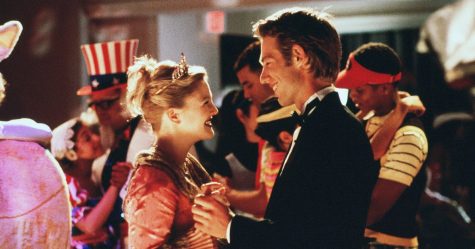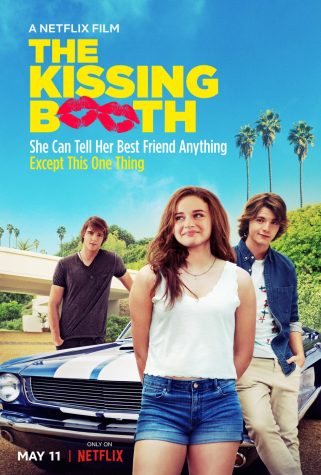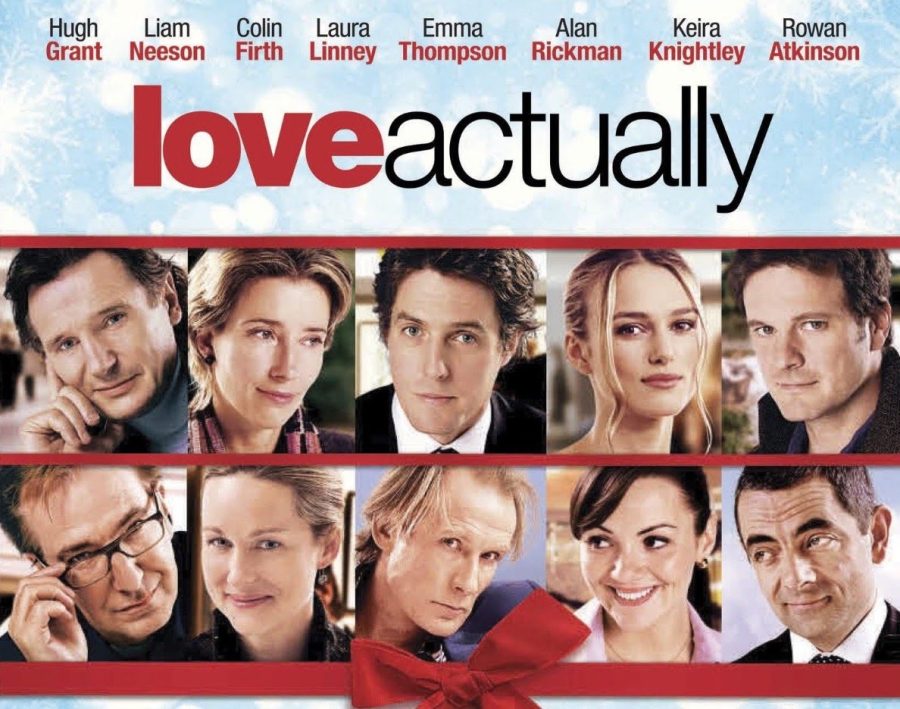Healthy Relationships Needed in Romantic Comedies
The holiday season has come to a close, and over break I watched what many consider to be a staple in their Christmas movie rewatches, “Love Actually.”
Released in 2003, “Love Actually” has become a sensation, and many people either love the movie or hate it. With a star-studded cast, including Alan Rickman, Emma Thompson, Hugh Grant, Colin Firth, and following many different storylines, it would seem like this movie would almost be impossible not to love. It has all of the elements of a perfect Christmas rom com, and I was excited to watch the movie.
To say the least, I was let down. And the only reason being that several of the relationships in the film are played off as cute when they’re actually incredibly creepy.
Now, why might this matter? Because for many people, rom coms are the dream. You want your life to play out like a rom com, to meet the perfect person at the coffee shop, and to then be later entangled in a series of mixed up events that have now led to the two of you pretending to date each other to fool your coworkers. Rom coms provide a sense of comfort, they’re fun to watch, and even though they almost always play out the same, the two leads fight but then reconvene and go off to their happily ever after, we keep watching them.
And it’s important that we include healthy relationships in modern media. These are the movies that little kids will look to, these are the movies that shape our expectations. And in romantic comedies, where the entire point of the movie is the relationship between the two main characters, the romance is not the subplot, it is the main point that the movie is trying to get across. And when these relationships are unhealthy, it can ruin the entire movie.
A healthy relationship includes different traits, such as mutual respect, trust, honesty, and good communication, among several other things. Healthy relationships in the media are often rare, as we live in a world where the private lives of celebrities are publicized and broadcasted to the general public. We rarely often see a relationship that hasn’t had to overcome the age old trope of miscommunication, where the two people in love misunderstand one interaction, and it’s blown to unhealthy proportions.
To counter, an unhealthy relationship is built upon dishonesty, disrespect, hostility, and control. These relationships are bad for you, your mental and physical health. And so often we see these types of relationships played out in beloved classic movies, especially in romantic comedies.
In “Love Actually,” we see several different relationships pan out. And while some of them are built upon communication, others are creepy and dishonest.

One of the plotlines follows Juliet and Mark, where Juliet is getting married to Peter, who is Mark’s best friend. But Mark is in love with Juliet, and it’s a classic case of the right person, wrong time. Except, instead of going about it respectfully, with Mark taking a step back from his best friend’s girl, he pursues a relationship with her, which leads to the scene where we get the swoon-worthy line, “to me you are perfect.” (It’s important to note that this scene occurs with Peter in the other room, as Mark is telling all of this to Juliet.)
I’m going to be honest, I can’t even see how this is romantic. Mark is confessing to his best friend’s wife that he’s been in love with her. And sure, they don’t get a happy ending (minus when Juliet runs out to kiss Mark), but his behavior towards Juliet is romanticized and often remembered as “swoon-worthy.” It’s anything but that. Juliet believes that Mark dislikes her, she even tries to win him over, because he’s the best friend of her husband, and she wants to make an effort. She only learns of Mark’s creepy and stalker-ish qualities when she arrives at his apartment, and watches the video that Peter took of her wedding. And the video is all of her, there is no Mark, or cute moments of the two of them.
Their relationship is unhealthy and creepy, and it’s one of the worst plotlines in this movie. And while there are other relationships in the movie that I think are absolutely fantastic, this entirely ruined the movie for me. Along with the comments about one of the characters, Natalie’s, weight. They are blink and you miss it, but comments like these, especially coming from a partner, can be severely damaging.
In the movie “Never Been Kissed,” a classic starring Drew Barrymore, Barrymore plays Josie Geller, a reporter who goes undercover as a high schooler, and falls in love with her English teacher, Sam Coulson, who is played by Michael Vartan.

First, there’s the lying. Their entire relationship is built on a lie, the lie that Josie is actually a high school student, and not an adult. And then there’s the romanticization of student/teacher relationships.
And while the movie plays this off as acceptable, it’s really not. The movie excuses it as, Josie was trying to out Sam and his pedophilic behavior for her paper, and somewhere along the way she just happened to fall in love with him as well. And because this is a rom com, they get together in the end, when Josie gets her first kiss at a ball game, from Sam. Sure, they’re cute, and technically, they are the same age. But Sam hits on Josie when he still thinks that she’s a student, a minor. It doesn’t matter that she’s not, this sets an unhealthy example for all of the people who are watching this movie.
One of my favorite romantic comedies, “27 Dresses,” even falls subject to an unhealthy relationship. The two main characters’ entire relationship is based in deception, because Kevin Doyle is writing an article about Jane Nichols, without her knowledge. This article is scathing and hurtful, and Jane rightly pushes Kevin away. But then later she goes back on everything, kisses the guy, and eventually, they get married.
I genuinely love this movie, it’s one of my guilty pleasures. Katherine Heigl and James Marsden play off their chemistry very well, and you can see how they could fall in love with each other. But, if I thought that this was the way a relationship was supposed to begin, that would be incredibly harmful.
When we show unhealthy relationships in a movie just about love and falling in love, we make it seem cute and fun. We make these things normal, when they are anything but.

And when we romanticize things that are unhealthy, to the point of toxicity, it’s something that we shouldn’t normalize. And I’m talking about one movie in particular, The Kissing Booth. In the beginning of the movie, Elle is asked out on a date (by a guy who sexually assaulted her, which is just so wrong on so many levels), but then the guy doesn’t show up. And she learns that it’s because her love interest, Noah, warned everyone not to date Elle.
The movie plays this off as cute, but this is a sign of a relationship that could turn potentially abusive. Especially because throughout the film, Noah is shown beating up several other people, and one of them is because he was defending Elle.
I was going to start here talking about all of the incredibly healthy relationships that we see in cinema. And I’ll be honest with you, all of the ones that I’ve found have their unhealthy traits, even the ones that I would consider to be some of my favorite movies. For instance, in “Fools Rush In,” I think that the two leading characters’ relationship is beautiful, and they manage to work together so well, even if the marriage was founded in not the most healthy of ways. But then on my rewatch of the movie, I forgot that the main girl faked losing her pregnancy because she believes that her and the guy that she married weren’t supposed to be together.
So, not all rom com relationships are going to be healthy and perfect. Because in real life not all relationships are healthy all of the time. And it’s perfectly okay to enjoy rom coms, even the ones where the relationships are unhealthy. But if you do watch those movies, it’s important to note that the relationship is unhealthy while you’re watching, and not to model your relationship after those ones.
But we need to stop making movies where the couple is unhealthy the entire time. We need to stop making movies where one of the partners is controlling and manipulative. We need to stop making movies where the couple is borderline abusive, emotionally and physically.

